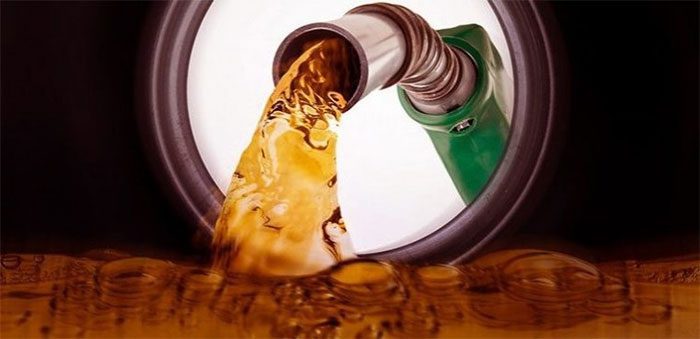Why do people enjoy the smell of gasoline despite knowing it is toxic? There are both subjective and objective reasons for this phenomenon.
So why do many people like the smell of gasoline, and what causes it?
Fundamentally, inhaling gasoline fumes is not good for you. According to Discover, Carl Engelking pointed out that gasoline contains benzene, a compound that increases the octane rating (a standard measure of fuel performance; the higher the rating, the greater the resistance to compression before exploding). The smell of benzene is very distinctive and easily recognizable from the first whiff, even in small amounts.

Inhaling gasoline fumes is not good for health.
It’s not surprising that you might enjoy the scent of benzene. Throughout the 1800s and early 1900s, benzene was added to create enticing fragrances in aftershave products and cleansing solutions. It was also used as a solvent to decaffeinate coffee.
However, over time, people stopped using benzene because it is a carcinogen, dangerous when inhaled at high concentrations or with prolonged exposure. Therefore, no matter how alluring the smell of gasoline may be, it is essential to stay away from it, as this fragrance falls into the category of toxic gases.
Two additional theories explaining why people enjoy the smell of gasoline
Although science has yet to provide a definitive conclusion on this topic, there are two prevalent theories.
Fragrance evokes memories
The first theory suggests that familiar smells always evoke strong and vivid memories, a phenomenon known as “olfactory nostalgia.” For instance, the aroma of freshly baked sponge cake often lingers in the childhood memories of many people, or the smell of burning wood on old matchsticks…
The strong connection between scent and memory vividly describes childhood recollections. Our keen sense of smell helps record all scents, intertwining with other senses like sight and hearing. They are recorded and processed by the right hemisphere of the brain, where nerve bundles detect scent molecules through olfaction and form memories. This is why scents cause our brains to create strong, prominent memories that tap into the subconscious.

The smell of benzene brings feelings of nostalgia, warmth, and colorful memories.
Similarly, the smell of gasoline may evoke a strong and pleasant memory associated with benzene. It is highly likely that the brains of those who enjoy the smell of gasoline have inadvertently retained this pungent scent along with childhood memories. According to them, that smell of benzene brings a sense of nostalgia, warmth, and colorful memories.
Inhibitory effects on the nervous system and inducing excitement
Another theory focuses more on the physical effects of benzene on the nerve receptors that specifically identify scents. Inhaling benzene and other hydrocarbons acts to inhibit the nervous system and temporarily induce excitement. This creates a pleasurable sensation similar to that of using stimulants.
Whenever your olfactory nerves detect benzene, it triggers the mesolimbic system to release a dose of dopamine, leading to feelings of pleasure. Essentially, this means that the brain is excitedly saying, “Wow! More, please!”
However, remember that regardless of your feelings, you should never intentionally inhale gasoline fumes, as they primarily contain benzene—a toxin that can cause cancer and many other serious health issues.




















































